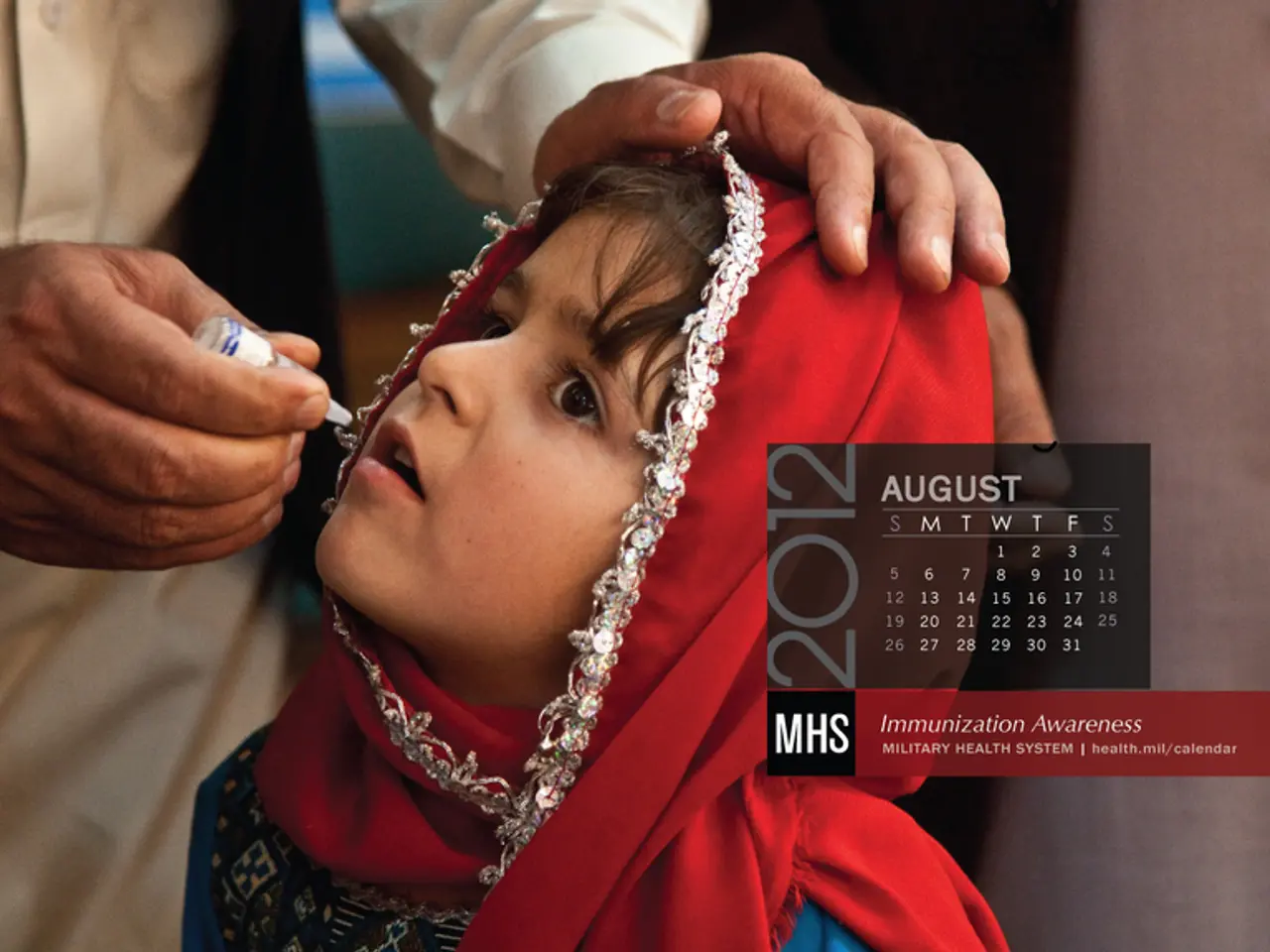Confirmed: Eighteenth polio case recorded in Pakistan for this year
Pakistan continues to battle the highly infectious and incurable polio virus, with the southern districts of Khyber Pakhtunkhwa (KP) remaining a critical area of concern. Despite considerable advancements in national vaccination initiatives, unvaccinated children and the spread of the poliovirus persist in these regions.
The National Emergency Operations Centre (NEOC) has planned two more nationwide and one sub-national campaign between August and December 2025, alongside targeted campaigns in high-risk districts. These efforts aim to halt virus transmission and protect children from polio in KP.
The Pakistan Polio Eradication Programme leads large-scale vaccination campaigns involving hundreds of thousands of trained polio workers. Vaccination extends to migrants and at border crossing points to reduce cross-border virus spread with Afghanistan, which shares endemic polio transmission. However, operational and security challenges in KP’s southern districts limit access to some populations and reduce the quality and reach of vaccination campaigns.
In a recent development, a new case of poliovirus was confirmed in Khyber Pakhtunkhwa on Friday. The case was identified in a 10-month-old boy from the Union Council Mullazai in the Tank district, bringing the national tally for 2025 to 18. This is the eleventh polio case in KP this year.
To address these challenges, a meeting between the prime minister's focal person on Polio Eradication and the coordinator of the NEOC, and the chief secretary of the province was held in Peshawar. The discussions focused on reviewing campaign performance, addressing current challenges, and strategizing to interrupt poliovirus transmission in high-risk southern districts of KP, including Tank.
A special planning meeting focused on South KP is scheduled to be held at the Chief Secretary's Office on August 2-3. The meeting aims to strategize ways to address the ongoing challenges and interrupt poliovirus transmission in high-risk districts of southern KP.
It is important to note that the only effective protection against polio is through repeated doses of the oral polio vaccine (OPV) for every child under five during each campaign, along with the timely completion of all essential immunizations. Poliovirus can re-emerge wherever immunity gaps persist, making unvaccinated children vulnerable and contributors to the spread of the virus.
Restricted access and operational challenges in conducting house-to-house vaccinations in southern districts of KP continue to impede immunization efforts, leaving thousands of children unvaccinated. The government, led by top officials including the Prime Minister, shows strong commitment, which has been recognized by WHO. The global health community supports continued surveillance and vaccination mandates, especially for travelers, while assessing progress every few months.
In conclusion, while Pakistan’s polio eradication program is robust and supported internationally, key challenges in southern Khyber Pakhtunkhwa include insecurity, operational quality variability, and cross-border population movements that hinder complete eradication. Continued high-level commitment, adaptive micro-planning, and enhanced cross-border cooperation remain critical to overcoming these challenges.
- We, as a nation, are confronting the polio virus, a highly infectious and incurable disease.
- The polio virus persists in southern districts of Khyber Pakhtunkhwa (KP), posing a significant concern.
- The National Emergency Operations Centre (NEOC) has planned three campaigns to halt virus transmission.
- These campaigns are scheduled between August and December 2025, with a focus on KP.
- The Pakistan Polio Eradication Programme conducts large-scale vaccination campaigns.
- Vaccination efforts extend to migrants and border crossing points with Afghanistan.
- Operational and security challenges in KP’s southern districts affect the reach and quality of vaccination campaigns.
- A new case of poliovirus was confirmed in Khyber Pakhtunkhwa, increasing the national tally to 18.
- This case was identified in a 10-month-old boy from Tank district, the eleventh polio case in KP this year.
- A meeting was held in Peshawar to discuss strategies for interrupting poliovirus transmission in high-risk southern districts of KP.
- A special planning meeting is scheduled to address ongoing challenges in southern KP.
- The only effective protection against polio is through repeated doses of the oral polio vaccine (OPV).
- Poliovirus can re-emerge where immunity gaps exist, making unvaccinated children vulnerable.
- Restricted access in southern districts of KP hinders immunization efforts, leaving thousands of children unvaccinated.
- The government's commitment to polio eradication has been recognized by the WHO.
- The global health community supports continued surveillance and vaccination mandates.
- Polio eradication program's success is supported internationally, but challenges persist in southern Khyber Pakhtunkhwa.
- Insecurity, operational quality variability, and cross-border population movements are key challenges.
- Continued high-level commitment, adaptive micro-planning, and enhanced cross-border cooperation are critical to overcoming these challenges.
- The government needs to address these challenges to ensure every child under five receives necessary vaccinations.
- WHO urges governments to prioritize polio eradication within their national health strategies.
- Despite ongoing challenges, the world's healthcare industry continues to strive towards global health and wellness.
- Science and technology advancements contribute significantly to the global fight against diseases like polio.
- Sleep and workplace wellness initiatives aim to promote overall health and productivity in various industries.
- Mental health is increasingly becoming a crucial focus in healthcare services, supporting those suffering from mental health conditions.
- Chronic diseases, such as cancer, respiratory conditions, and digestive health issues, require continued medical research and treatment.
- Eye health, hearing, and skin care are essential aspects of overall health and wellness, requiring regular check-ups and therapies.
- Fitness and exercise, nutrition, and weight management are key components of a healthy lifestyle and industry.
- Sexual health, autoimmune disorders, and aging are also areas of concern that require dedicated research, treatment, and prevention strategies.
- Women's health, men's health, and parents' health are all essential topics for discussion in healthcare and policymaking, affecting various aspects of society, including child-rearing, cardiovascular health, environmental science, finance, and more.




